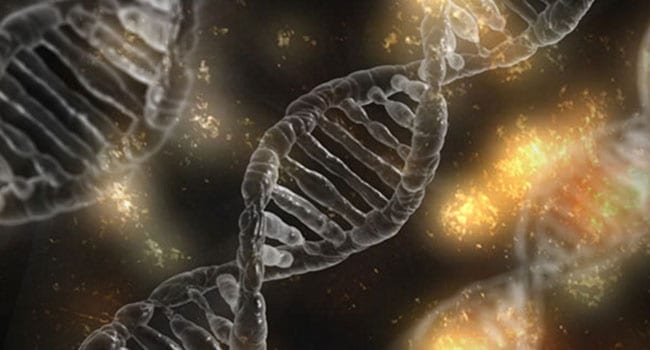By Nicole Letourneau
and Suzanne Tough
University of Calgary
Genetics will save the day – that’s the message you see constantly in the media and even in academic literature. But it’s a message that can distract us from providing quality care now.
Newspapers herald breakthroughs in finding genetic biomarkers for autism. Magazines trumpet finding a biomarker for attention deficit/hyperactivity disorder (ADHD). We read in the grocery line that a gene linked to depression has been found!
These are serious conditions, so of course parents and public health officials are enthusiastic about the potential of finding genetic causes. The same articles that hype the discoveries also calmly assure us that once genetic biomarkers are identified, gene therapies will solve all our problems. Genetic discovery will lead to personalized medicine and we will all be winners.
Nicole Letourneau
The reality is much more complex. While understanding how genes influence behaviour and development is important, evidence now suggests genetic influence in many developmental disorders is not as significant as first imagined.
We are a long way from identifying definitive biomarkers and personalized gene therapies are likely generations away.
Autism is an excellent example. It’s true that when one identical twin has autism, the chances of the second twin having autism are increased (though not a certainty), showing a genetic connection. However, geneticists have not been able to identify a single gene for autism. Rather, they have found many genes, each exerting its own small effect in a complex polygenetic interplay.
And even when specific genes are implicated, personalized therapies addressing multiple genes are not very likely.
Suzanne Tough
The focus on biomarkers and the potential of gene therapies may have distracted us from using and expanding services and supports that show promise or already work for many children.
Numerous studies show that children with autism improve with intensive social-focused treatments such as speech, behavioural and occupational therapies. For decades, evidence has accumulated about how supporting parents and providing interventions to enrich children’s educational environments can dramatically improve developmental outcomes.
And there is growing evidence for psychological and social interventions, along with family supports for addressing ADHD, with solid outcomes.
We don’t mean to imply that there is no genetic component to the developmental hurdles children with autism or ADHD face. But waiting until we understand the genetic underpinnings – or funnelling essential funds into genetic discovery – distracts us from investing in community strategies that help these children and their families be successful today.
Take depression as another example. We know that people who carry certain genes related to depression are more likely to be depressed as teenagers and adults when they were also raised in difficult conditions, such as experiencing neglect or abuse as children.
But others with those same genotypes thrive as teenagers and adults when they had optimal early environments. This speaks to the important role of positive social conditions. On the surface, genotype seems to matter, but only under poor early environmental conditions.
So rather than assessing children for their genotype in order to identify those at risk for this specific cause of depression, we could benefit all children, including those at risk, by ensuring all young families and communities are adequately supported to provide children with the best start in life.
Family and community supports such as early intervention, income support, group prenatal and parenting programs, perinatal home visiting and high-quality educational child care could protect children and youth from potential serious behavioural and emotional problems, regardless of their genotype.
So in a range of issues such as autism, ADHD and depression – all with long track records of distinct evidence-based social and community interventions – genetic discoveries are interesting, certainly, and worth pursuing, of course. But they do not provide the help that is needed today.
Let’s save the hype for what helps families now. Let’s invest in evidence-based therapies, and social and community supports so that families get the help they need now.
Children facing developmental challenges and hurdles can’t wait for a sensationalized personalized genetic future. They need early childhood education and classroom supports, one-on-one therapy, parenting supports and income supports to keep the family out of poverty. In other words, tried and true treatments that don’t need to be discovered because the research is already there – and they work.
Nicole Letourneau is the Alberta Children’s Hospital Foundation Chair in Parent-Infant Mental Health, a professor at the University of Calgary and author of Scientific Parenting. Suzanne Tough is a Professor with the Departments of Paediatrics and Community Health Sciences in the Faculty of Medicine at the University of Calgary.
Nicole and Suzanne are Troy Media Thought Leaders. Why aren’t you?
The views, opinions and positions expressed by columnists and contributors are the author’s alone. They do not inherently or expressly reflect the views, opinions and/or positions of our publication.




